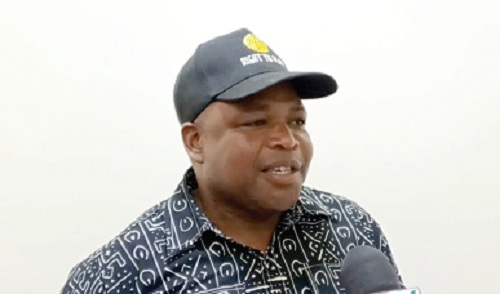A roundtable national stakeholder dialogue on sexual health and reproductive education (SHARE) project implementation has ended at Koforidua, the Eastern Regional capital.
The project is a five-year initiative of four consortia, namely, Right to Play, WaterAid Ghana, Forum of Africa Women and Educationists (FAWE) and Family Health International (FHI 360), with the support of the Government of Canada (GOC).
The two-day engagement aims at improving access to sexual and reproductive health education and services for young people, particularly adolescent girls and young women within four selected Metropolitan, Municipal and District Assemblies (MMDAs) in the country.
The MMDAs are Bongo District, Kassena Nankana West District, Kassena Nankana Municipal and Builsa North Municipal, all in the Upper East Region.
Knowledge sharing
The event was to share knowledge on the findings from the SHARE project by Right to Play and its partners. Stakeholders were unanimous in their call for more education on adolescent sexual and reproductive health in order to address stigmatisation.
![]()
The project is being spearheaded by Right to Play International, which focuses on the lessons learned, reflecting on renewed resolve on its sustainability and scaling it to other parts of the country.
It also focuses on the promotion of education, health and social welfare, identifying key advocacy issues that require urgent attention.
Addressing challenges
To address the challenges, Right to Play Ghana has recognised the importance of leveraging the collective wisdom, influence and expertise of other consortia (CSOs) such as the FAWE, FHI 360, WaterAid Ghana, Ghana Health Service (GHS) and Ghana Education Service (GES).
The primary goal of the engagement was to ensure open discussions and share insights on areas for improvement, exhibit the project products and achievements that will contribute to adolescent sexual reproductive health development, with long-term relevance and sustainability.
Training manuals
The Technical Advisor of FHI 360, Jacob Larbi, who addressed the participants, said Share Project had developed training manuals for general health workers and community health volunteers to meet international best practices on adolescent health services.
He indicated that GHS had also approved the Share Project to adopt facilitation guidelines for training on adolescent and youth-friendly health services as the basic training guide for health workers.
Mr Larbi stated that the project had come a long way in helping to contribute to the paradigm shift of GHS delivery of adolescent and sexual reproductive services, adding that FHI 360 had also come out with an overall programme delivery.
Girl-child
For his part, the Country Director of Right to Play Ghana, Evans Sinkari, in an interview with the Daily Graphic, told the participants that RTP had also focused on the girl-child education in rural communities to enable such children have access to the relevant information on their own sexual health and reproductive needs to help them attain their full potential in the future.
He observed that the project had been strengthened to support the GHS and the GES in providing training manuals on adolescent health to enable the young ones to prioritise reproductive health education.
Mr Sinkari indicated that the objective of the engagement was to share lessons and contribute to the overall development of national strategic policies that would drive the provision of edolescent sexual and reproductive health services.
The Programme Head of the Adolescent Health and Development at the GHS, Sherifa Mohammed, in her presentation, gave an update on the need for the revision of the Adolescent Health Policy from 2016 to 2020.
Writer's email: haruna.wunpini@graphic.com.gh

